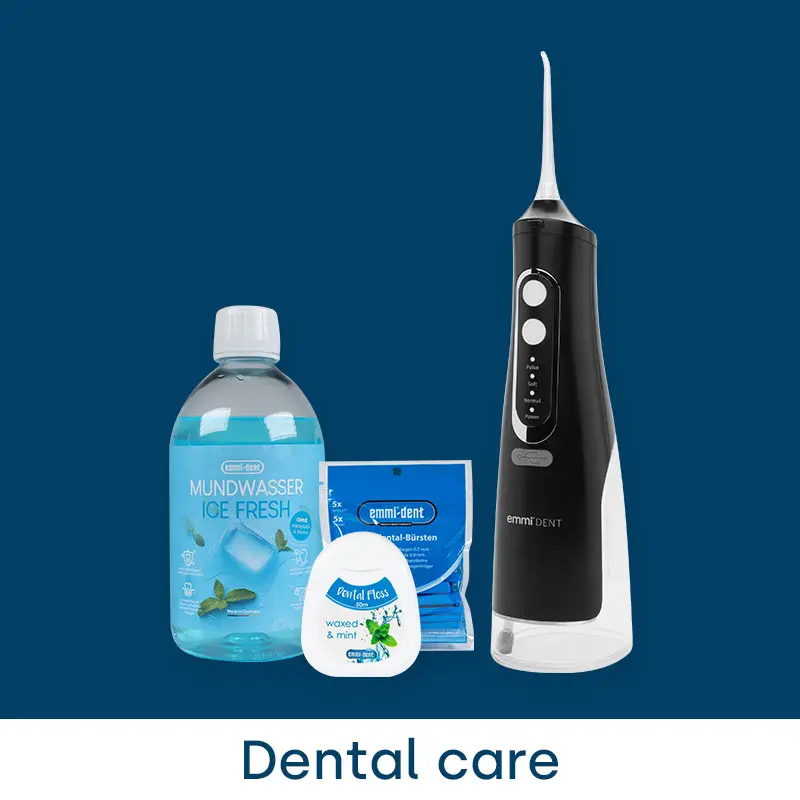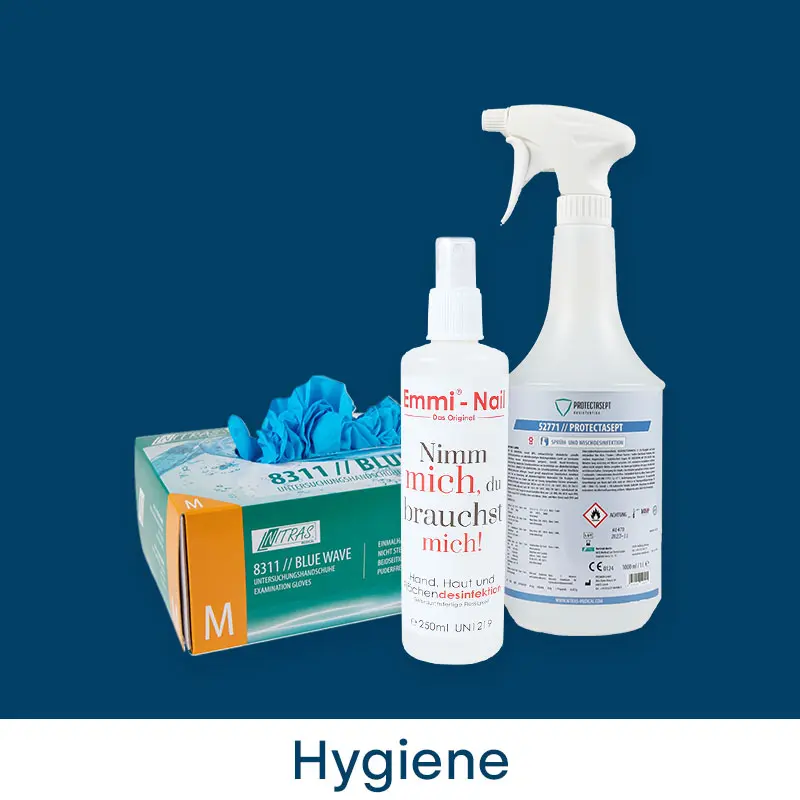
Did you know that your radiant smile can not only be good for your self-confidence, but also for your lungs? Yes, you heard right! There is a recognisable connection between oral health and lung disease. In this article, we'll take a closer look at the connection.
And why is that important? Well, the truth is that neglecting your oral hygiene can cause more than just tooth decay. It can even increase your risk of pneumonia. So get ready to delve deeper into this exciting and important topic, because a healthy smile could actually lead to healthier lungs too!
The most important facts summarised in advance
There is a proven link between oral health and lung disease. Neglected oral hygiene can increase the risk of pneumonia.
Improving oral hygiene and professional dental care play a decisive role in the prevention of lung diseases.
Interdisciplinary approaches that take into account both oral and lung health can have a positive impact on health.
There are specific lung diseases that are related to oral health, and patients with these diseases can benefit from improved oral hygiene.
Recent research and case studies support the link between oral health and lung disease and emphasise the need for good oral care as a preventive measure.
The basics of oral health
To better understand the fundamental aspects of oral health, it is important to realise that your mouth does not function in isolation from other organs in our body. In fact, there is a strong interaction between the health of your mouth and your lungs. According to studies, poor oral hygiene can increase the risk of lung disease, including pneumonia.
It is important to take these measures seriously to minimise the risk of lung disease. A healthy mouth contributes to healthy lungs.
1. importance of oral hygiene
The importance of oral care is often underestimated, especially in the relationship between oral health and lung disease. In fact, poor oral hygiene habits, such as not flossing or visiting the dentist regularly, can increase the risk of lung diseases such as pneumonia and periodontitis. Bacteria from the mouth can easily enter the lungs and cause infections, especially in older patients.
It is therefore crucial to practise careful oral hygiene to avoid such health complications. Taking oral hygiene seriously means not only keeping your breath fresh, but also promoting the well-being and health of your lungs.
2. common oral diseases and their effects
In the midst of everyday responsibilities, we tend to neglect our oral health. But did you know that neglecting oral care increases the risk of developing pneumonia lung disease? In the connection between oral health and lung disease the development of bacteria in our mouths plays a decisive role. Bacteria that multiply due to poor oral hygiene can enter the lungs and cause diseases such as aspiration pneumonia.
It is not only important for older patients to take their oral hygiene seriously. Thorough and regular oral hygiene reduces the risk of developing lung diseases and therefore promotes our general well-being.
The link between oral health and lung disease
There is a close relationship between the health of our teeth and lungs. Failures in oral hygiene can lead to the development of lung inflammation . As previously mentioned, especially in elderly patients, lack of oral hygiene can increase the likelihood of aspiration pneumonia . It is therefore essential to practise effective oral hygiene to reduce the risk of such complications.
Good oral care includes the following steps:
Brush your teeth twice a day, ideally with our emmi-dent ultrasonic toothbrush
Daily use dental floss
Regular visits to the dentist
Use of a mouthwash
Avoidance of tobacco and alcohol
We should therefore not only pay attention to fresh breath, but also to our oral hygiene for the health of our lungs.
1. pathophysiology
To understand the pathology behind the link between oral health and lung disease, let's look at the role of oral hygiene. Harmful bacteria that thrive in an unhealthy mouth can enter the lungs through breathing or swallowing. This increases the risk of lung infections such as aspiration pneumonia. Poor oral hygiene can exacerbate the condition, particularly in older patients who may already be susceptible to lung disease.
Perodontitis, a common disease of the periodontium, has also been linked to chronic lung disease in studies. You should therefore take regular oral hygiene seriously to prevent such complications.
2. specific lung diseases and oral health
When it comes to specific lung diseases, the state of your oral health can play a crucial role patients with poor oral hygiene may have an increased risk of lung infections such as aspiration pneumonia. The harmful bacteria that thrive in your mouth can travel to your lungs and cause infections.
Therefore, pay particular attention to your oral hygiene to prevent lung diseases. In older patients or people with pre-existing lung disease, the link between oral health and lung disease can be even more pronounced. Even periodontitis has been linked to chronic lung disease. As one study shows, improved oral hygiene can reduce the risk of pneumonia.
Prevention and management
Given the clear link between oral health and lung disease, effective prevention and control of these problems is of great importance. Here are some of the most important steps you can take to improve your oral health and reduce your risk of lung disease:
Brush your teeth after every meal
Use dental floss daily
Regular visits to the dentist
Avoidance of tobacco products and alcohol
Healthy diet, rich in vitamins and minerals
Use of an antibacterial mouthwash
It is worth noting that these measures are particularly important for patients who already suffer from lung diseases or are at increased risk of such diseases, such as older people or people with periodontitis.
1. improvement of oral hygiene
So let's improve your oral health and protect your lungs at the same time. Research shows a clear connection between oral health and lung disease. Bacteria in the mouth can easily enter the lungs, which can lead to respiratory diseases. Therefore, eliminating bacteria through thorough dental cleaning is an important step in reducing the risk of lung disease.
Remember that routine dental check-ups are also essential. Whether it's checking for periodontal disease or treating cavities, your dentist is your best ally for healthy mouth and lung function.
2. professional dental care
Your professional dentist offers more than just check-ups and cavity treatments. In fact, the thorough care they give your mouth can actually help reduce the risk of lung disease. Research findings highlight the link between oral health and lung disease and show that oral hygiene at home and regular professional dental cleanings can reduce pneumonia.
This is especially true for chronic lung diseases like aspiration pneumonia. So be sure to take your oral hygiene seriously and have your teeth cleaned regularly by a professional to keep your lungs healthy.
Tips for those affected
For your health, it's important to understand the role of oral hygiene in the relationship between oral health and lung disease . Here are some tips that can help:
Establish a daily tooth brushing routine.
Use dental floss to clean hard-to-reach areas.
Avoid sugary drinks and foods.
Use antibacterial mouthwashes.
Arrange regular dental appointments for professional teeth cleaning and check-ups.
These measures can help reduce the incidence of respiratory diseases and improve your overall health. Remember, your oral health is an integral part of your overall wellbeing!
1. practical advice for patients with existing lung diseases
For people who already suffer from lung disease, some useful tips for maintaining their health are essential. Constant monitoring of oral health can positively influence the link between oral health and lung disease. Patients should practise thorough daily oral hygiene and avoid sugary foods.
Regular use of an antibacterial mouthwash can be helpful for patients with periodontitis. Scientific publications report that poor oral hygiene increases the risk of aspiration pneumonia. In addition to oral care at home, we recommend using our emmi-dent ultrasonic toothbrush and scheduling regular visits to the dentist for professional teeth cleaning and check-ups.
2. recommendations for improving oral health as a preventive measure
The state of your oral health plays an important role in the fight against lung disease. Periodontitis, for example, can increase the risk of lung disease. It is therefore advisable to take oral hygiene seriously.
Two aspects are particularly important here: regular, thorough cleaning of your teeth and avoiding sugary foods. In addition, an antibacterial mouthwash can help you keep germs at bay.
Motivation to implement improved oral care
With increasing information about the connection between oral health and lung disease it is becoming increasingly important to prioritise the care of your mouth. An important incentive is the fact that a lack of oral hygiene can lead to the development of lung disease and chronic pneumonia.
If you take your oral hygiene seriously, you will not only protect your teeth and gums, but also your lungs. By avoiding periodontitis and regularly using antibacterial mouthwashes, you can minimise the risk of lung disease and help keep your lungs healthy at the same time.











